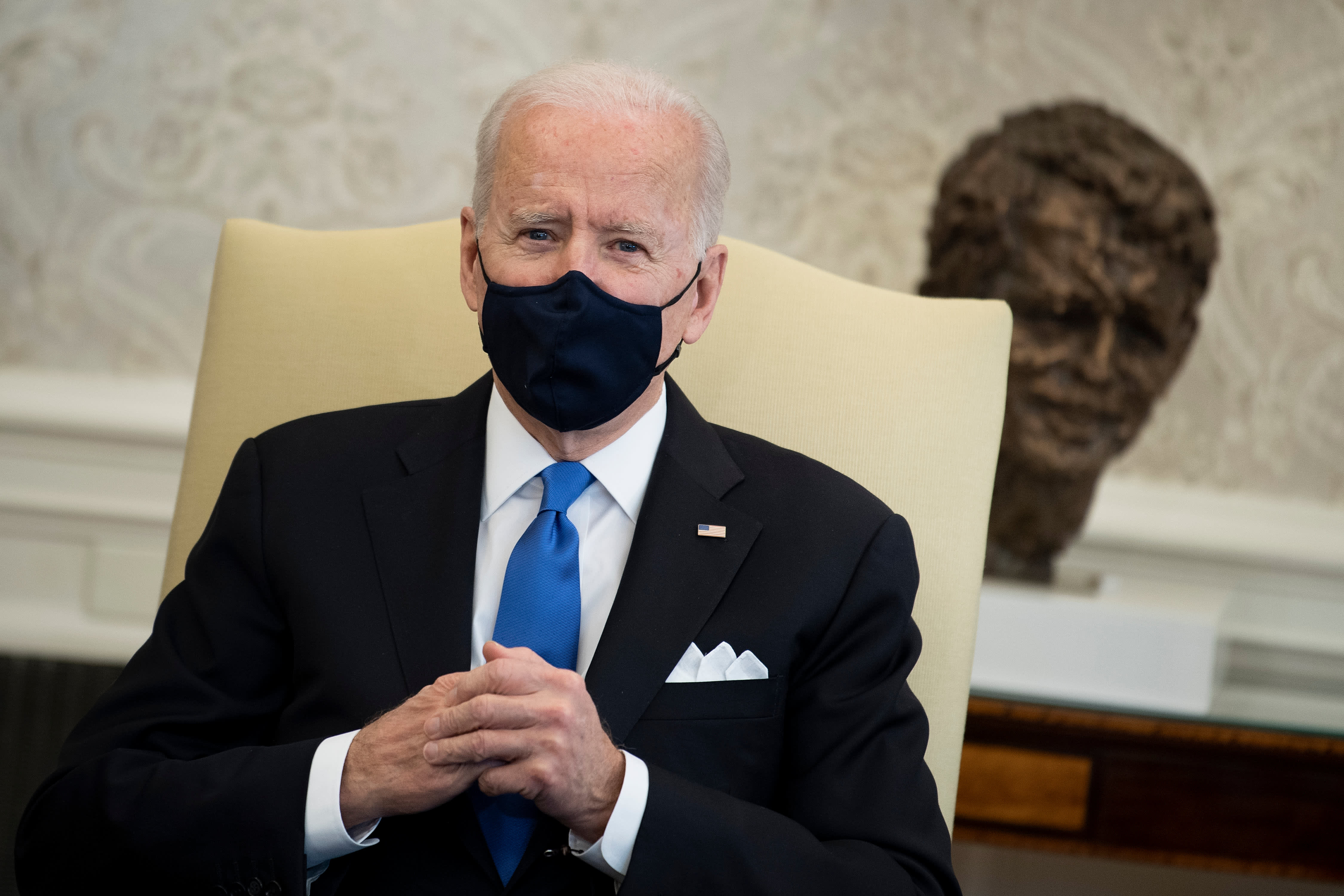The President of the United States, Joe Biden, agreed to reduce the limits of the income levels for the third round of stimulus payments.
BRENDAN SMIALOWSKI | AFP | Getty Images
LONDON – The United States and the European Union may have reached a trade truce, but some analysts have doubts whether the two sides will be able to reach agreement on other controversial issues, such as digital taxation and relations with China.
U.S. President Joe Biden and European Commission President Ursula von der Leyen on Friday announced a suspension of tariffs imposed during Trump’s presidency on aircraft subsidies. The dispute first arose in 2004 and the World Trade Organization decided in 2019 and 2020 that the U.S. and the EU had granted illegal support to Boeing and Airbus, respectively.
Tariffs of $ 7.5 billion on EU products and $ 4 billion on US products are now suspended for four months, while both sides seek to work out an agreement that will include a permanent solution to support the aircraft industry.
European officials said the announcement marks a “restart” in transatlantic relations after four turbulent years under Trump’s presidency, but some analysts are not convinced.
“The suspension of tariffs is a first step towards defrosting trade relations between Europe and the United States and, hopefully, a sign that these tariffs will be removed soon,” said Fredrik Erixon, trade expert at the think tank ECIPE, to the CNBC on Monday.
“I am less convinced that the suspension signals a completely new orientation in transatlantic trade, with new agreements to support further economic integration.”
Technology giants
A particularly controversial issue is how some of the world’s largest technology companies are taxed.
The news from last week is good news and takes away a short-term risk to the economy that we have always had to rely on for the past four years.
Carsten Brzeski
economist at ING in Germany
The EU and the US have had disagreements on this issue for years, as well as on security issues surrounding 5G. But since Biden arrived at the White House, the EU is confident that some of these differences can be overcome.
In fact, the United States opened the door to an agreement on digital taxation, which the Organization for Economic Cooperation and Development plans to conclude this summer.
But Biden has not completely departed from all of his predecessor’s policies. He implemented the Buy American First initiative to encourage manufacturing in the country and boost the economy in general, as the coronavirus pandemic affects the world’s largest economic power.
In the meantime, the EU has also intensified discussions on strategic autonomy, with the aim of reducing its dependence on certain parts of the world.
“Both sides are increasing their economic protection against the world economy. In the United States, through new policies from Buy America, for example, and in Europe, by a general campaign to get rid of their technological dependence on the United States. Both the sides say they want to take transatlanticism into a new era, but for that to happen, they will first have to resolve controversial issues like digital taxes and friction with new technologies, “said Erixon, from ECIPE.
China and Russia
In addition, there are also some sensitivities on how to deal with China and Russia.
The EU signed an investment agreement with Beijing just weeks before Biden’s inauguration, despite fears that the 27-member bloc may be damaging its relationship with the new president. At the same time, some American lawmakers believe that the EU is not assertive enough when it comes to human rights issues in China.
The United States is also opposed to the pipeline being built from Russia to Europe and has sanctioned some companies involved in the project.
However, in a press release on Friday, after a phone call with Biden, von der Leyen said: “We share a strategic vision of Russia.”
Holger Schmieding, European chief economist at Berenberg, told CNBC on Monday that the next item on the transatlantic task list could be “attempts to neutralize the conflict over the Nordstream 2 pipeline”.
Carsten Brzeski, ING economist in Germany, also said that the tariff suspension “does not mean that everything will be okay, there are still many obstacles ahead as Nordstream and how to deal with China.”
But in the meantime, European exporters can breathe a sigh of relief at a time when the region is facing a serious economic crisis.
“The news from last week is good and eliminates the short-term risk to the economy that we have always had to rely on for the past four years,” added Brzeski.
